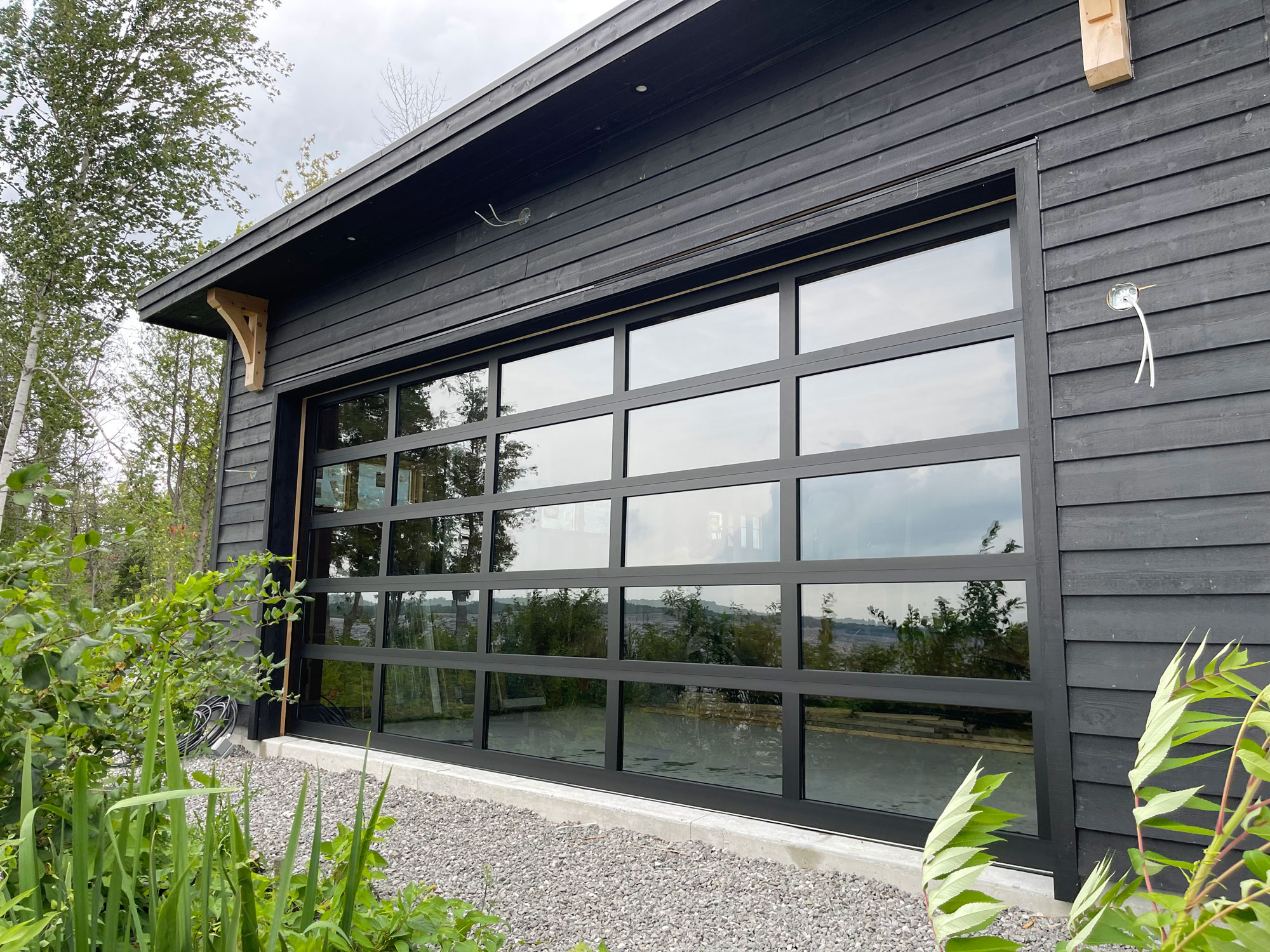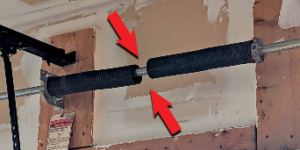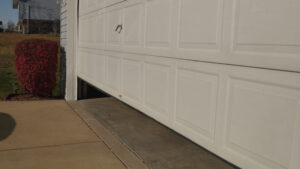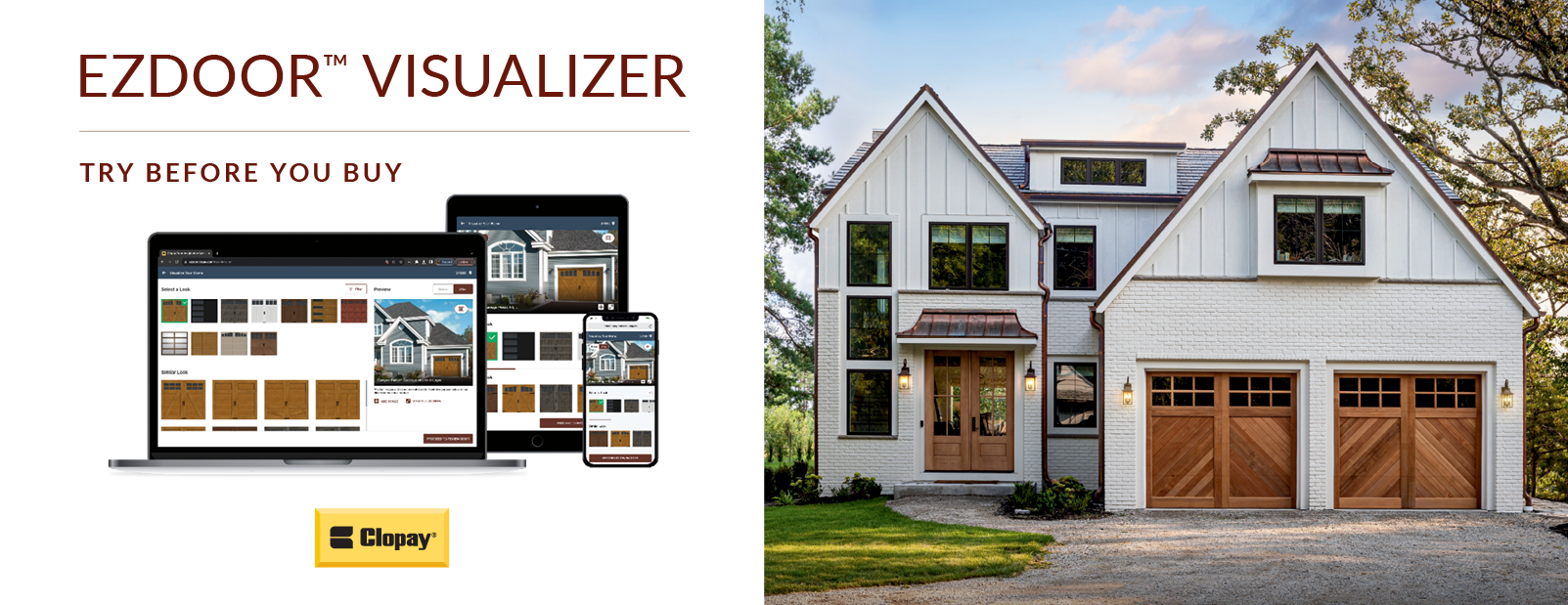Reasons Your Garage Won’t Close
You use your garage door daily, opening and closing it to keep your car and property safe. When it isn’t functioning properly, a quick diagnosis and expert repair are essential. There can be many reasons why your garage door won’t open or close, and the following are some of the most common.
1. Garage Track Damage
The tracks are the stationary lanes on either side of the garage door opening that enable the door to move. If these are bent, warped or misaligned, the door may get stuck and you won’t be able to close it.
2. Transmission Problems
An automatic garage door not closing can signal a transmission issue, meaning the garage door receiver isn’t working. Your door operates when you push a button on the remote control unit that sends a signal to the opener. If your door doesn’t close on command, there could be a transmitter malfunction in the opener.
3. Spring Malfunctions
The torsion or extension springs play a vital role when opening and closing your garage door. As the springs age, they lose the tension required to allow your door to function correctly. If your door doesn’t close, it could mean that the springs have reached the end of their lifespan and need replacing.
4. Cable Issues
Garage door cables and springs are designed to counterbalance the door’s weight, resulting in smooth opening and closing functionality. If a cable breaks or winds itself around the shaft, it can stop the door from opening or closing.
5. Enabled Disconnect Switch
Most door systems have a switch or locking mechanism that disconnects the opener so you can operate the door manually during a power outage. This is done by pulling down on the rope attached to your unit. If you don’t remember to reconnect the switch or locking mechanism after the power returns, you won’t be able to close the door with the opener until reconnection.
6. Malfunctioning Auto-Reverse Mechanism
Is your garage door not closing fully? Does it stop suddenly and begin to move upward? It could be a problem with the auto-reverse mechanism, a safety feature designed to keep the door from falling on a person or object.
This could result from blocked, dirty, damaged or misaligned photo eye sensors, which are located on either side of the opening near the bottom. When aligned correctly, a light on each photo eye will be lit up solid and not flicker, one green and the other yellow.
Garage Door Troubleshooting Tips
Now that you know some of the possible causes of your garage door not opening, you can try to get it working again. Some issues require just switching a button or pulling a string, while others require expert attention.
Try the following troubleshooting tips if you’re experiencing garage opener problems:
- Check the Remote Batteries: Batteries sometimes die prematurely, so changing these might solve the problem.
- Ensure the Opener Has Power: Make sure the garage door opener is plugged in, and also check the garage switch on the circuit box.
- Reconnect the Disconnect Switch: If you suspect the disconnect switch might be the culprit, locate the string hanging from your garage door opener and pull on it.
- Check the Safety Sensors: Wipe the safety sensors clean of dirt and dust, and check that nothing interferes with the beam.
- Inspect the Tracks: Check the tracks for any blockages, like a small stone or piece of material. If there are no blockages, look for signs of warping or damage.
When to Call a Professional
It’s crucial never to test or try and repair the garage door springs yourself. These hold up the entire weight of your garage door, and any unexpected movement can cause the door to slam down, causing injury or damage.
Once you’ve tried the troubleshooting tips and nothing works, call a professional for:
- Garage Door Spring Damage: If your garage door springs are snapped, worn, rusted or damaged, call a professional.
- Compromised Cables: Frayed, broken or wound cables will interfere with the garage door’s operation and need expert repair.
- Bent tracks: Bent tracks are best left to a contractor, who’ll provide the right diagnosis and repairs.
- Transmitter Issues: Sometimes, your garage door may still not work even after replacing the remote’s batteries. If the receiver has a problem, it’s best to call a technician.
- Misaligned Sensors: Misaligned sensors can be tricky to realign, especially if they’re not level. In some cases, the entire garage door opener system may be outdated and need a replacement. Getting a professional to diagnose the issue can save you time and ensure a thorough repair.
- Broken Disconnect Switch: The switch may be corroded or have physical damage, needing professional repair.
Contact Stouffville Garage Doors for Garage Door Service and Repair
Is your garage door not closing correctly or experiencing any other mechanical or performance issues? Stouffville Garage Doors has the experience and expertise to diagnose and repair the problem quickly and efficiently. Contact us for more information or to schedule a convenient service appointment today.






